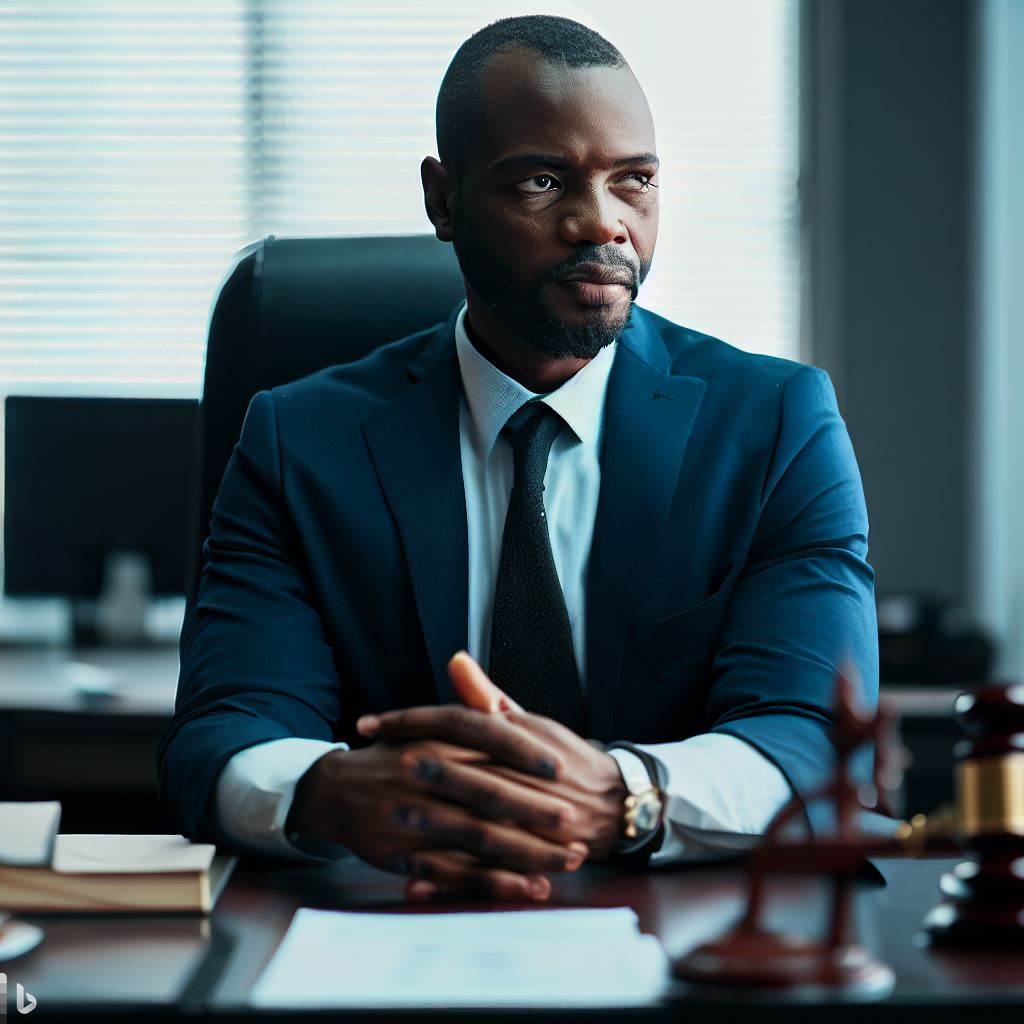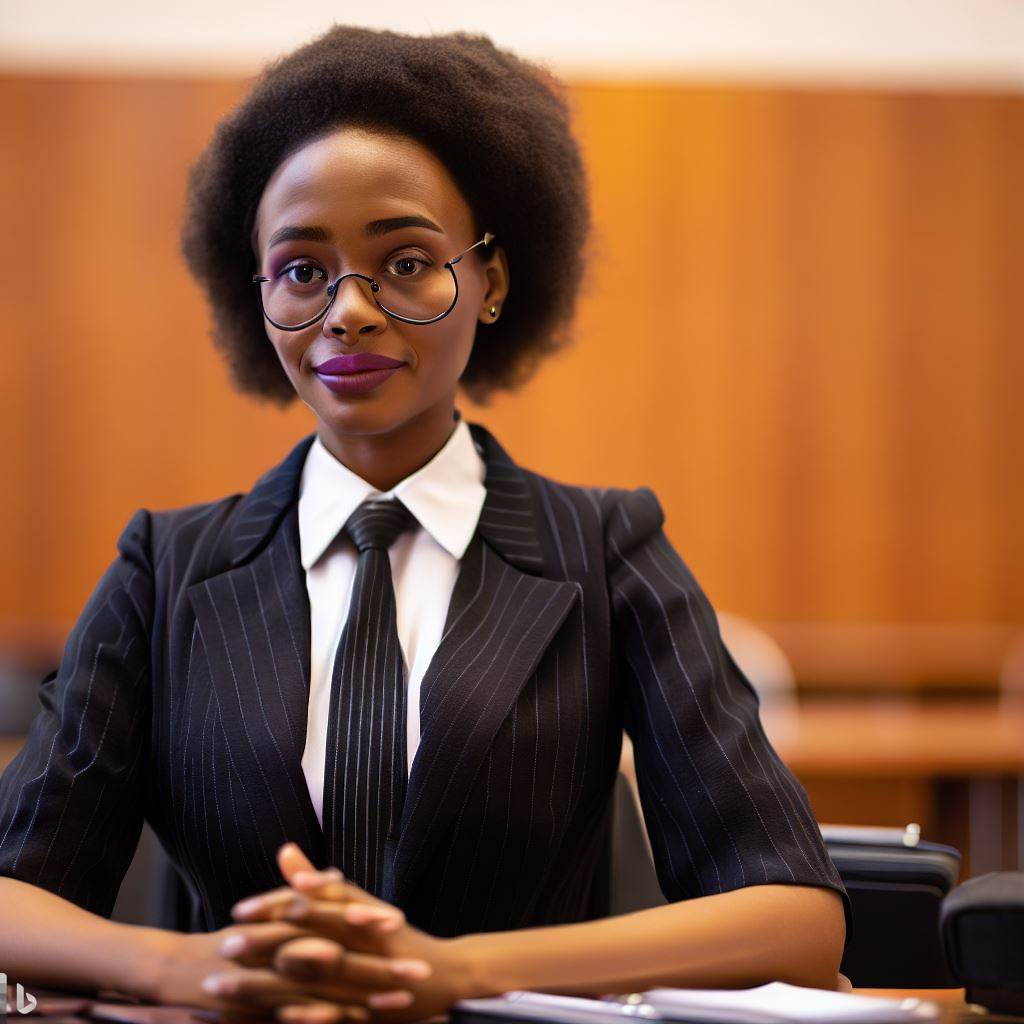Introduction
A. Overview of the entertainment industry in Nigeria
Nigeria has a thriving entertainment industry that encompasses music, film, fashion, and more.
It is a vital part of the country’s cultural identity and a significant contributor to its economy.
B. Importance of understanding entertainment law and IP rights for Nigerian artists
As Nigerian artists navigate the competitive entertainment industry, it is crucial for them to have a good understanding of entertainment law and intellectual property (IP) rights.
This knowledge protects their creative works and ensures they receive proper recognition and compensation.
Entertainment law encompasses legal issues specific to the entertainment industry, such as contracts, licensing, and copyrights.
It provides a framework for artists to assert their rights and resolve disputes.
IP rights are essential for Nigerian artists as they safeguard their original creations, including music, films, designs, and brands.
These rights give artists exclusive control over their work, allowing them to monetize their talents and build successful careers.
Without a solid understanding of entertainment law and IP rights, Nigerian artists may face various challenges.
These include copyright infringement, unfair contracts, and the unauthorized use of their creative works.
All in all, Nigerian artists must educate themselves about entertainment law and IP rights.
By doing so, they can protect their creative works, assert their rights, and thrive in the ever-evolving entertainment industry.
Understanding Entertainment Law
A. Definition and Scope of Entertainment Law
- Entertainment law refers to a specialized area of legal practice that focuses on issues related to the entertainment industry.
- It covers a wide range of legal matters, including contracts, intellectual property, rights management, and more.
- The scope of entertainment law encompasses various sectors such as music, film, television, theater, sports, gaming, and more.
- It involves providing legal advice, drafting contracts, handling disputes, and protecting the rights of artists and entertainment professionals.
B. Key Legal Principles in Entertainment Law
- Contracts and Negotiations: Contracts are essential in the entertainment industry to establish rights, obligations, and compensation for all parties involved.
Legal professionals assist artists in negotiating and drafting contracts with record labels, producers, distributors, and other industry stakeholders. - Intellectual Property Protection: Intellectual property rights play a crucial role in the entertainment sector. Artists must understand copyright, trademark, and patent laws to protect their creative works, brand names, and inventions.
Lawyers help artists register their works, enforce their rights, and handle cases of infringement. - Rights Management: Managing rights involves overseeing licensing deals, royalties, permissions, and clearances. Lawyers work to secure and protect the rights of artists, ensuring proper compensation and credit for their creative contributions.
They handle negotiations with broadcasting networks, streaming platforms, sponsors, and other entities to maximize artists’ financial rewards.
Basically, entertainment law is a critical aspect of the Nigerian artist’s journey in the entertainment industry.
Understanding the definition, scope, and key legal principles in this field is crucial for success.
Contracts and negotiations, intellectual property protection, and rights management are essential elements that every artist should familiarize themselves with.
By seeking legal counsel and staying informed, Nigerian artists can navigate the complexities of the industry while safeguarding their creative and financial interests.
Read: How to Become an Entertainment Lawyer in Nigeria
Intellectual Property (IP) Rights
Intellectual Property (IP) refers to the legal rights granted to individuals or entities for their creative works, inventions, or designs.
These rights protect the ownership and control of intangible assets that can be commercially exploited.
In the entertainment industry, IP rights are of utmost importance for Nigerian artists, as they safeguard their artistic creations and ensure they reap financial and economic benefits.
A. Definition and types of IP rights
1. Copyright
Copyright protects original works of authorship, such as literary, musical, and artistic creations.
It grants exclusive rights to reproduce, distribute, display, or perform the work.
2. Trademarks
Trademarks are signs, symbols, or logos that distinguish and identify goods or services of one party from others.
They provide brand recognition and prevent confusion among consumers.
3. Patents
Patents are granted for new inventions, providing the inventors with exclusive rights to use, sell, or license their inventions for a certain period of time.
This encourages innovation.
4. Industrial designs
Industrial designs protect the visual aspects of an object, such as its shape, pattern, or ornamentation.
They prevent others from copying or imitating the design.
B. Importance of protecting IP rights for Nigerian artists
1. Preserving artistic creations
IP rights ensure that Nigerian artists have control over their creative works, preventing unauthorized use or reproduction.
This preserves the integrity and originality of their art.
2. Securing financial and economic benefits
By protecting their IP rights, Nigerian artists can monetize their creations through licensing, selling, or merchandising.
This allows them to generate income and sustain their artistic careers.
C. Copyright infringement and its consequences
1. Piracy issues in the Nigerian entertainment industry
Nigeria’s entertainment industry faces significant challenges related to piracy.
Copyright infringement hampers artists’ ability to earn fair compensation for their work and discourages creativity and investment in the sector.
Unauthorized copying, distribution, or selling of copyrighted material not only deprives artists of their rightful income but also hinders the growth and development of the Nigerian entertainment industry as a whole.
Overall, Nigerian artists should be well-informed about IP rights and take the necessary steps to protect their creations.
By doing so, they can fully benefit from their artistic talents and contribute to a thriving and vibrant entertainment sector in Nigeria.
Read: Essential Legal Advice for Nigerian Artists and Their Managers
Key Considerations for Nigerian Artists
A. Registration of works
1. Copyright registration process
Nigerian artists must familiarize themselves with the copyright registration process.
Copyright registration is the official recognition and documentation of an artist’s work by the Nigerian Copyright Commission.
It provides legal evidence of ownership and helps resolve disputes in case of infringement.
2. Official registration offers several benefits to Nigerian artists.
Firstly, it creates a public record of ownership, making it easier to prove authorship in case of disputes.
Secondly, registered works can be licensed and commercialized more effectively, leading to potential financial gains.
Additionally, copyright registration enables artists to take legal action against anyone who infringes upon their rights.
B. Licensing and royalties
Licensing is a crucial aspect of the entertainment industry, particularly for Nigerian artists.
1. Effective negotiation strategies for licensing
Artists should develop effective negotiation strategies to ensure fair licensing deals for their works.
It is important to carefully review licensing agreements, considering the duration, territorial rights, and permitted use of the work.
2. Contractual agreements
Contractual agreements play a vital role in determining royalty payments.
Nigerian artists should engage legal experts to draft strong contracts that protect their interests.
These agreements should clearly outline the payment terms, royalty rates, and mechanisms for monitoring and auditing the usage of the copyrighted works.
C. Trademark registration for artists
1. Protecting stage names and logos
Artists in Nigeria should prioritize trademark registration to protect their stage names, logos, and brand identity.
Trademark registration provides legal protection against unauthorized use and imitations by others in the industry.
To safeguard their stage names and logos, artists should conduct a thorough search to ensure that their chosen name or logo is not already registered or being used by someone else.
Once cleared, they can proceed with applying for trademark registration through the Nigerian Trademark Registry.
2. Preventing unauthorized use
Trademark registration prevents unauthorized use and helps artists build a strong brand identity.
It enables Nigerian artists to take legal action against infringers and strengthens their position in the industry.
Essentially, Nigerian artists should prioritize understanding and protecting their intellectual property rights.
Registering their works with the Nigerian Copyright Commission provides legal evidence of ownership and offers various benefits.
Developing effective negotiation strategies and having strong contractual agreements are crucial for fair licensing and royalty payments.
Trademark registration safeguards artists’ stage names and logos from unauthorized use.
By proactively addressing these key considerations, Nigerian artists can secure their rights and thrive in the entertainment industry.
When it comes to the entertainment industry in Nigeria, understanding the legal landscape surrounding intellectual property (IP) rights is crucial for every artist.
Nigerian artists should be aware of key considerations related to entertainment law and IP rights to safeguard their creative works, negotiate fair licenses, and prevent unauthorized use of their brand identity.
Read: Protecting Creatives: Legal Rights in Nigeria’s Entertainment Industry

Case Studies
Case studies provide valuable insights into the experiences of Nigerian artists in dealing with entertainment law and intellectual property (IP) rights.
By examining specific examples, we can learn important lessons and understand the challenges faced by artists in protecting their creative works.
A. Examples of Nigerian artists’ experiences with entertainment law and IP rights
- Davido discovered that his hit song “Aye” was being used without permission by American rapper Lil Wayne. Despite sending cease and desist letters, the infringement continued, leading to a legal battle.
- Kunle Remi, a popular actor, found his image used on a billboard advertising a brand called “Magic Hair Growth Oil” he had no association with. This unauthorized use of their likeness resulted in financial loss and damage to their reputation. Though, the company later apologized and removed the billboard.
- Tekno, an up-and-coming musician as at 2012, signed a record deal without fully understanding the terms and conditions. As a result, they lost control over their music, receiving minimal royalties and being unable to freely pursue their artistic vision.
B. Lessons learned from legal disputes and challenges
- Registering creative works with the Nigerian Copyright Commission provides strong evidence of ownership and can help in legal battles.
- Prior to signing any contracts, artists should seek professional legal advice and carefully review all terms and conditions to avoid exploitation.
- Artists have the right to control the use of their image for commercial purposes and should take necessary precautions to protect their likeness.
- Enforcing intellectual property rights can be a lengthy and expensive process, but artists should not hesitate to take legal action when necessary.
- Building a strong relationship with a knowledgeable entertainment lawyer is crucial for navigating the complexities of the industry and safeguarding artists’ interests.
These case studies emphasize the importance of understanding entertainment law and IP rights in Nigeria.
Artists need to be proactive in protecting their creative works, image rights, and contractual agreements.
By learning from the experiences of their fellow artists, they can avoid legal disputes and ensure their rights are respected in the dynamic entertainment industry.
Read: The Influence of Entertainment Lawyers on Nigerian Musicians
Legal Support and Resources
A. Importance of seeking legal advice
- Seeking legal advice is crucial for Nigerian artists to protect their intellectual property rights.
- An experienced entertainment lawyer can provide guidance on contracts, licensing, and copyright infringement.
- Legal advice helps artists make informed decisions, ensuring their rights are safeguarded in the entertainment industry.
- It minimizes the risk of disputes and legal complications that can arise from not having proper legal representation.
- Protecting intellectual property through legal support can also help artists maximize their financial gains.
B. Identifying reputable entertainment lawyers in Nigeria
- Word of mouth recommendations from fellow artists or industry professionals can help identify reputable entertainment lawyers.
- Research online for credible law firms specializing in entertainment law and intellectual property rights.
- Check the lawyer’s credentials, experience, and track record in handling entertainment-related cases.
- Consider lawyers who have represented established Nigerian artists successfully in previous legal matters.
- Arrange consultations with potential lawyers to discuss their understanding of entertainment law and their approach to cases.
C. Online resources and organizations supporting Nigerian artists
- The Nigerian Copyright Commission provides information and resources for artists on copyright protection.
- The Entertainment Lawyers Association of Nigeria (ELAN) offers support and guidance for legal matters in the entertainment industry.
- Intellectual Property Lawyers Association Nigeria (IPLAN) specializes in protecting intellectual property rights.
- The Performing Musicians Association of Nigeria (PMAN) advocates for the rights of Nigerian musicians.
- Music Publishers Association of Nigeria (MPAN) supports Nigerian music publishers and songwriters.
Nigerian artists can leverage these online resources and organizations to gain knowledge, access legal support, and network within the industry.
Read: The Evolution and History of Legal Professions in Nigeria
Conclusion
A. Recap of key points
Nigerian artists need to be aware of their entertainment law and intellectual property rights.
They should understand that their creations have value and can be protected.
B. Encouragement for Nigerian artists to actively understand and protect their IP rights
It is essential for Nigerian artists to take an active role in understanding and protecting their intellectual property rights.
This will enable them to have control over their works and benefit financially from their creativity.
C. Significance of compliant practices for the growth of the Nigerian entertainment industry
Compliant practices in regards to entertainment law and intellectual property rights are crucial for the growth and development of the Nigerian entertainment industry.
By respecting these laws, the industry can attract investments, foster creativity, and create a sustainable environment for artists to thrive in.




